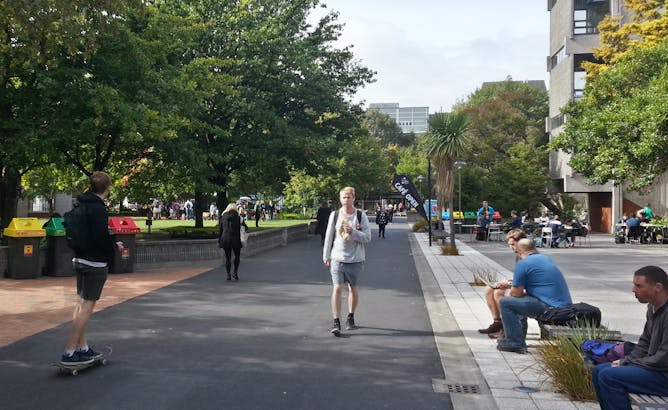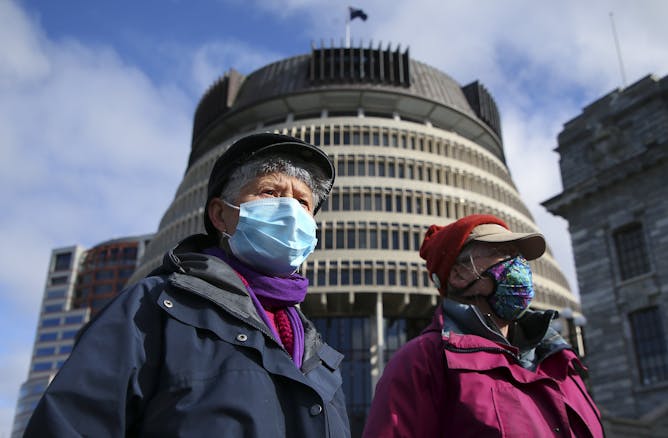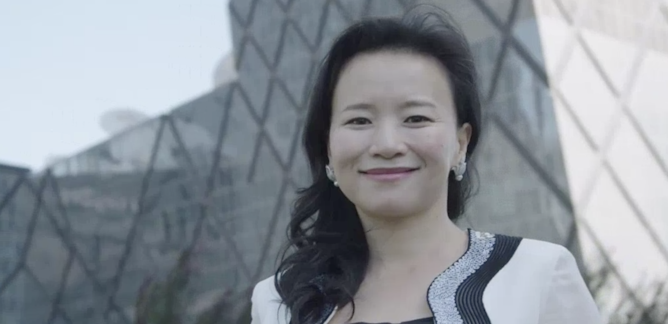|
|
|
|
Nau mai haere mai - welcome to your New Zealand newsletter.
After sustained attacks on the New Zealand stock exchange and other businesses, the Government Communications Security Bureau (GCSB) issued a warning that more is likely to come. IT expert Dave Parry explains why it has become easier to turn computers into bots, making multi-day attacks more common.
Last week, after three intense days of hearing testimony by victims, Justice Mander met public expectation with his decision to ensure the Christchurch terrorist never again walks free. His sentence of life with no chance of parole is without precedent in New Zealand, and as law expert Alexander Gillespie writes, the only appropriate outcome for an unprecedented crime. Fellow legal expert Kris Gledhill concludes the terrorist’s silence and acceptance of the sentence means an appeal is unlikely.
Meanwhile, as Auckland relaxed COVID-19 restrictions this week amid some concern about the number of new cases, modelling shows the temporary lockdown has improved our chances of eliminating the virus again. Researchers at Te Pūnaha Matatini explain that without it, we would have seen an explosive outbreak.
You will find much more in this newsletter and on the New Zealand page. As always, many thanks for reading and supporting The Conversation. Feel free to share this newsletter with friends and colleagues who you think might appreciate our work too.
Until next time – take care, ngā mihi nui ki a koutou katoa.
|
Veronika Meduna
New Zealand Editor: Science, Health + Environment
|

|
|

Adam Bradley/SOPA Images/Sipa USA
Kris Gledhill, Auckland University of Technology
It's hard to see how there will be any appeal for the Australian mass gunman who was jailed for life without parole since he was so accepting of his fate.
|

Shutterstock/fotogestoeber
Dave Parry, Auckland University of Technology
The cyber attacks on New Zealand's stock market are part of global malicious activity. The government's immediate goal is not to catch the perpetrators but to share information to stop the attacks.
|

AAP
Alexander Gillespie, University of Waikato
In a New Zealand legal first, mass-murderer and terrorist Brenton Tarrant is jailed for life with no chance of parole.
|

NASA
Robert McLachlan, Massey University
Climate Explained is a collaboration between The Conversation, Stuff and the New Zealand Science Media Centre to answer your questions about climate change. If you have a question you’d like an expert…
|

ChameleonsEye/Shutterstock
Dominic O'Sullivan, Charles Sturt University
There are repeated calls for agency to be run by Māori and focused on improving Māori health, but so far nothing has been done.
|

Fiona Goodall/Getty Images
Michael Plank, University of Canterbury; Alex James, University of Canterbury; Nicholas Steyn; Shaun Hendy
As Auckland prepares to ease restrictions from Monday, active COVID-19 cases almost certainly remain in the community. Masks will become compulsory on public transport to avoid new outbreaks.
|

Shutterstock/reinaimaging
Cheryl Brown, University of Canterbury
Universities need to consult more with those at the sharp end of the changes forced by the coronavirus, and that means the students.
|

GettyImages
Barbara Allen, Te Herenga Waka — Victoria University of Wellington; Flavia Donadelli, Te Herenga Waka — Victoria University of Wellington
The centralised system that made NZ's initial pandemic response so successful also explains the recent failures at the border.
|

Hagen Hopkins/Getty Images
Michael Baker, University of Otago; Amanda Kvalsvig, University of Otago; Nick Wilson, University of Otago
New Zealand's most pressing challenge is to bring the current COVID-19 outbreak under control, but it also time to make more strategic improvements to prevent future border control failures.
|
From our international editions
|

Marc Hudson, Keele University
It shouldn't have been the case that business groups only acted when the problem became undeniable and started to hurt profits.
| |

Tony Walker, La Trobe University
There has not yet been an explanation for the detention of the CGTN news anchor, but it is difficult to untangle it from deeply strained relations between China and Australia.
|

Kathryn Crawford, Middlebury
Endocrine-disrupting compounds are pervasive in modern life, from food packaging to shampoo. Research is connecting their effects on humans to risk of severe illness or death from the coronavirus.
| |

Mark Smith, University of Leeds; Chris Thomas, University of Lincoln
We modelled surface water across Africa to show which parts of the continent are climatically-suitable for malaria – and how this will change.
|

Johannes Petry, University of Warwick
To overcome the European Commission's antitrust concerns about a dominant player in European bonds outside the EU, LSE is selling parts of the Italian Stock Exchange.
| |

Budi Irawanto, Universitas Gadjah Mada
Tilik’s narrative and the portrayal of its characters allow women take centre stage in this film.
|

Merja Myllylahti, Auckland University of Technology
They employ thousands and are highly commercial, and increasingly their staff are turning to unions.
| |

Clare Corbould, Deakin University
Both Black Panther and Beyoncé's Black is King represent a utopian vision of empowerment and connection to Africa.
|
|
|
| |
| |
| |
| |
| |
| |
|
|
|
|
|
|
|